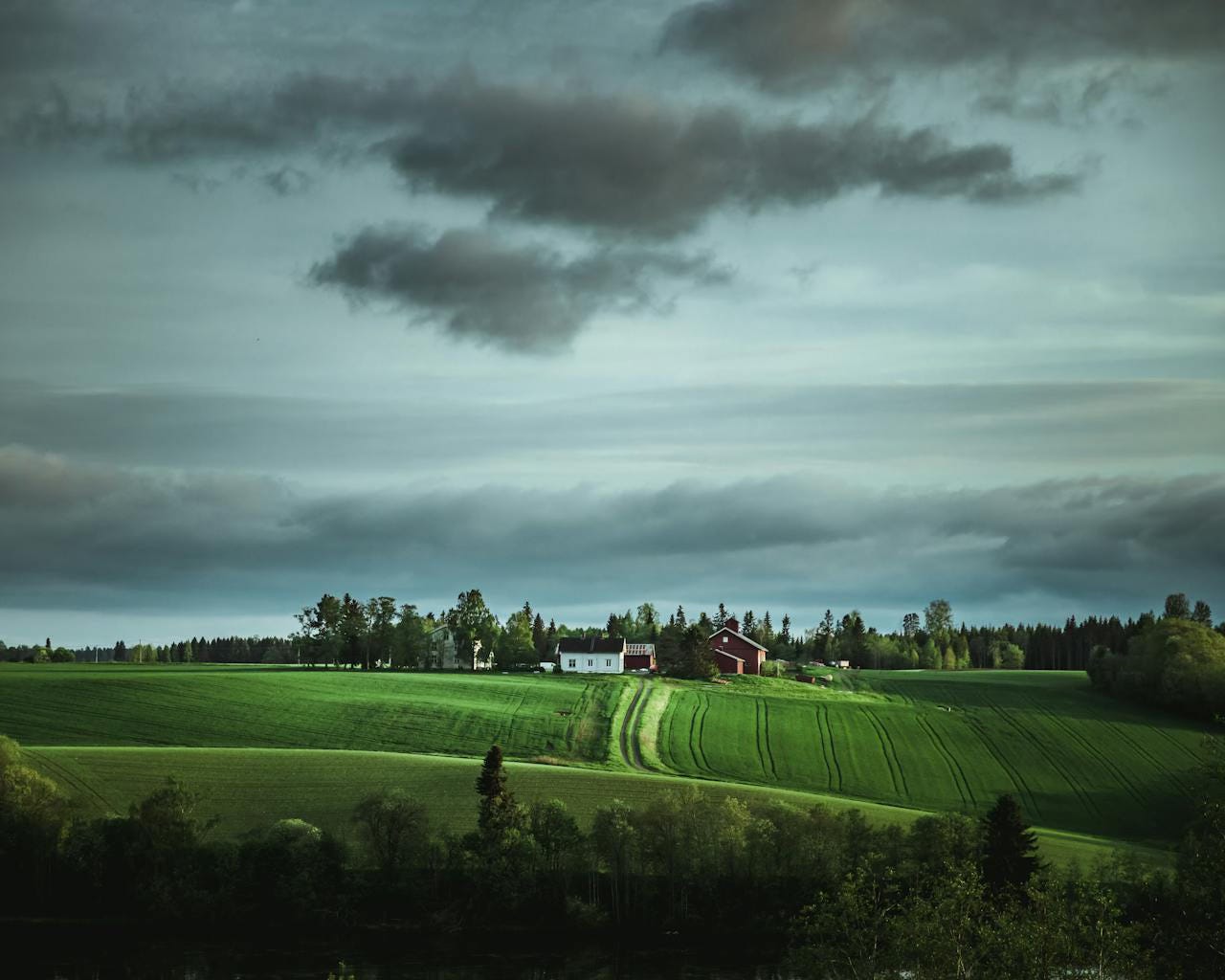Individualism is a fallacy.1 But like all widely held fallacies, it is one many of us find attractive and somewhat believable; especially when we see the self-centred man sitting there grinning, surrounded by all his gold and all his fulfilled wishes.
But don’t be deceived by the fallacy — or the vanity. As time goes on, individualism, with help from its attendant vices, slowly eats away at the individual and, if left unchecked, will progress to the terminal disease that I call “obnoxious hollowism”. It is easy to spot; the sufferer becomes an ugly and empty shell of a person, always insisting on “my way” to the scant few who can still tolerate being around them. One should also be concerned when they see a great trail of destruction of everything that stood in the way of the individualist’s selfish desires. It is another unmistakable indicator that the disease has become terminal.
I am loath to say there is a certain kind of farmer who appears to be particularly tempted by the individualistic fallacy. But it is true. And it is the “rugged” form of individualism that they find most attractive. Alone in their farmhouse far away from urban civilisation, the individualistic farmer believes him or herself to be the lord of their land, free from any busybodies telling them what they can or cannot do, and dependent on no-one. Bliss.
But it is all an illusion. The mere fact that most modern-day farmers must go to the supermarket to put food on their table, ought be enough to burst the fallacy-bubble of rugged individualistic independence. And anyway, what staunch individualists see as their great strength, may prove to be their most fatal weakness: especially in this day and age of instability, volatility, and cut-throat competition. By striking it out alone; by severing ties to their local communities when seeking the big (and ultimately illusive) wins on the global commodity markets; and by neglecting to attend to the long-term ecological needs of their fields, individualistic farmers are making themselves vulnerable and exposed at a time they cannot afford to be. They are taking a risk that history tells them they will come to regret.
No man is, or can be, a mere individual. The quicker individualistic farmers learn to accept this, the better able they will be to weather the economic and climatic storms rapidly approaching on the horizon.
The fact of the matter is that farmers are always dependent. Most irrevocably so upon their land and the unseen creatures who call its soil home, and also upon that most temperamental of beasts: the weather. These natural dependencies are unavoidable. Like a flower which is utterly (or obligately) dependent upon pollination by bees, farmers are utterly dependent on the sun shining and on creatures performing the essential ecological tasks that farmers themselves cannot manage nor bring about; tasks which if left unperformed would mean the farmers can forget about harvest: it won’t be happening.
But too many farmers fall victim to the rugged individualistic fallacy that it is their labour alone that makes or breaks the farm; the health and work of earthworms, bees, and spiders can be safely taken for granted and ignored. One also wonders if belief in this fallacy partly explains the willingness of some industrial farmers2 to neglect or even abuse their soils, and their propensity to dispense with on-farm wild habitats so as to make more room for productivity. It wouldn’t surprise me.3
Thankfully, however, most farmers are well aware that they are dependent on nature. That is why they strive to work with it rather than against it, and why they spend time and money doing things which make little short-term sense (such as planting trees or hedges), but for which they will reap the long-term dividends that are associated with ecologically healthy farms. Being aware of their obligate dependency on nature is also why good farmers treat it with respect, knowing that unless they put the time and effort into cultivating this relationship they might find that nature, far from being a good friend, turns against them to be their most ardent foe.
Thus, only a foolish farmer would kid themselves that they are a totally independent being; dependent on nothing but themselves and their own over-inflated capacities. But such farmers, though they are a minority, do exist. And some of them have taken the belief in the rugged individualistic fallacy further. Not only do they believe they can be in independent of nature, but they believe they can be independent from other humans too — with predictably tragic results.
Keep reading with a 7-day free trial
Subscribe to Over the Field to keep reading this post and get 7 days of free access to the full post archives.



